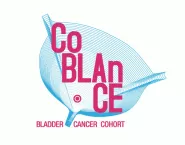COBLANCE
Bladder Cancer Research Cohort

Bladder cancer is the sixth leading cause of cancer in Europe. Despite its high incidence, very few studies have been carried out on this cancer, particularly on the identification of therapeutic targets and theranostic biomarkers (analyzing genetic characteristics whose results will influence a person’s treatment), and on the cost effectiveness evaluation of treatments. This assessment is particularly important, as bladder cancer is one of the most expensive cancers to treat, with long follow-up periods, high recurrence rates, multiple surgeries and invasive monitoring.
Key elements
- Launched in 2012
- 1,800 patients newly diagnosed with bladder cancer
- followed for 6 years
Objectives of the cohorte
So far, no effective targeted therapy and no predictive marker for disease recurrence or progression have been identified. Tobacco and certain occupational exposures to aromatic amines are established risk factors for bladder cancer; however, their role on the molecular characteristics of tumors and on disease progression is poorly understood and probably depends on genetic and/or epigenetic factors.
The objective of the consortium, which includes teams from different specialties (epidemiology, health economics, urology, pathology, and molecular biology), is to establish a prospective cohort of patients with bladder cancer.
Patients are recruited in 14 clinical centers in France and are followed for 6 years.
Socio-demographic, environmental, clinical, economic, and quality of life data are collected at enrollment and during follow-up, in addition to samples of tumor tissue, blood, and urine.
An expanded consortium was formed from the consortium responsible for a Tumor Identity Card® project of the National League Against Cancer, which generated significant results, including the identification of a specific progression marker for certain bladder cancer subtypes. These results make it possible to consider bladder cancer as several distinct diseases and not as a single entity.
This cohort will make it possible to:
- Study the combined effects and interactions of multiple genetic variants (or biological pathways) and environmental factors on the molecular subtypes of tumors,
- Study the characteristics of recurrences/progressions on sequential tumor samples,
- Confirm previous results and those of the literature on a large number of tumors collected prospectively,
- Transfer the results of the studies to the clinic,
- Evaluate the use of health resources in current practice and their evolution,
- Promote French research and active participation in international studies.
Management and governance
COBLAnCE falls under the scientific direction of Simone Benhamou, from the Oncostat team of the CESP-Inserm research center in epidemiology and population health (National Institute of Health and Medical Research), U1018, in collaboration with Julia Bonastre, from the Gustave Roussy Institute, Thierry Lebret, from the Foch Hospital, and François Radvanyi and Yves Allory, from the Curie Institute.
Detailed informations
- COBLAnCE web site (FR)
- Portail Épidémiologie France (EN/FR)
No news has been published for this cohort, you can consult all the news in the spotlight section
Terms and conditions of accessing cohort data
- Accessible to academic and industrial teams
- By request, under certain terms and conditions: cohort data/sample access charter communicated after request; evaluation of research project synopses by the steering committee and validated by COBLAnCE’s Scientific Advisory Board; contracting co-managed by COBLAnCE and Inserm Transfert.
- Contact: COBLAnCE website
- Benhamou S, et al. A prospective multicenter study on bladder cancer: the COBLAnCE cohort. BMC Cancer, 2016 ; 16(1):837